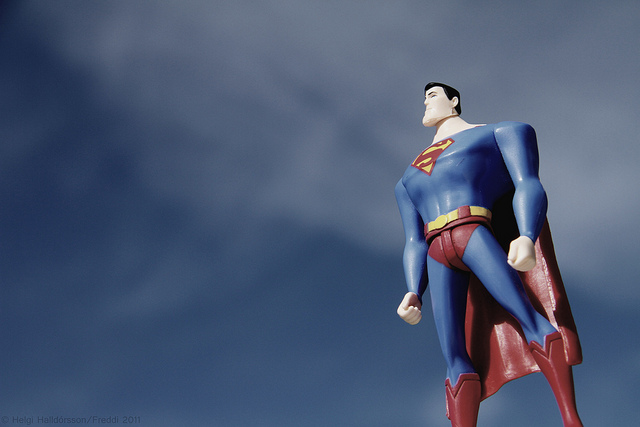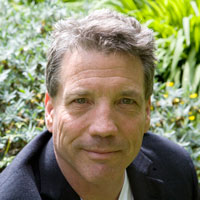
Life is a story. And who we perceive ourselves to be is our story.
It began when we were very young. Our personality, preferences and beliefs were formed long before we were old enough to do anything about it. How we define ourselves, how we describe ourselves and how we think of ourselves is determined by our story.
The details are determined by the roles we see ourselves playing. The famous psychiatrist Carl Jung described these roles as archetypes: hero, villain, god, devil, wise old man, wise old woman, child and parent, to name a few. We either unconsciously or consciously play these roles.
My story includes those and others as well: lawyer, chef, cattle rancher, horse trainer, healer, speaker, mentor.
When we contemplate the role we are acting out in the moment we get a better idea of who we are at that moment. Every morning when I wake up, I ask myself, “Who am I going to be today?” It’s a proactive approach, however sometimes I just wake up and continue playing the role I was playing the day before.
Sometimes I’m hero; sometimes I’m victim. I spend time analyzing my behavior, beliefs and thoughts, because I would rather be a hero, but my early childhood taught me to be a victim. The gap between the two is the source of my angst and my struggles.
In other words, the gap between who I think I am and who I want to be creates a tension that can be overwhelming.
A few years ago I went through a difficult time in my life. I suffered great financial loss and hardship. I felt lonely—like I would never find someone to share my life. I was asked to leave a spiritual organization that I later realized was actually more of a cult. I was repeatedly falling in love with women who did not love me back. Great story, right?
One attribute of being a hero is the ability to separate ourselves from our story. A victim is one with their story, while a hero recognizes they are not their story. I have played many roles in my life, but I can find no peace while I am identifying with the role I am playing. When I detach from the role, peace comes. For me, to be a hero in my own story means that I have to take responsibility for my thoughts, words and actions, and understand that whatever I am experiencing is my own creation.
If I am not getting what I want, I have to change a fundamental belief: I have to want what I have and be happy with who I am. This takes a lot of discipline and courage, and many are too lazy to do this. But perception is everything—if I perceive I am a hero, I can be that.
Here is the absolute truth about being a hero: it takes more effort to be happy than it does to suffer.
We all know how to suffer, just lean into it and go for the drama. What happens is not my fault, it is always someone else’s. When I lost everything and was kicked out of the organization I had made my life, it would have been easy to blame it all on the leader of that organization. What I discovered when I tried to blame everything on him, was that I didn’t feel any better. In fact, I only made myself even more depressed. When I accepted the responsibility of my actions, I began to feel like I could heal from that pain. When I play the victim, there is no healing.
One of the amazing results of playing the hero, is the opening that I felt in my heart. When I chose to take responsibility for myself, it was easier to open up to people.
I was describing to an old friend what I had been through and he said, “You have the biggest heart of anyone I know.” I believe this is because I did not blame anyone for my experience. I was not bitter and I did not make excuses. When we are able to describe what we have experienced without hardening our hearts, people can tell the difference.
Sometimes being a hero means showing up and giving 100 percent of myself to whatever is happening at the moment—even when no one else is showing up as they promised. In my case, that meant doing all I could to salvage my financial situation. I moved to another city in an attempt to resurrect a business that was going under. As it turned out, I could not save it, but at least I could hold my head up knowing that I did not run away from the situation.
Being a hero also means that I have to say “No.” Heroes understand what they can and can’t do. This was probably the hardest lesson for me because I’ve always had difficulty saying no to people who ask for my help.
What I learned from all of my loss and pain was that being a hero is about empowerment—heroes never disempower themselves for others. The irony is that when we take back our power, we allow others to do the same.
The purpose of every story is to discover how we empower ourselves. A story that involves blame and shame is a story of disempowerment, while one that involves responsibility and change is a story of empowerment.
The choice I face each morning is deciding which story I will tell. I wish to do no harm to myself or others. I wish to enjoy my journey and be happy. I do not wish to be attached to my pain and suffering. I want to learn from it and become wiser.
All I can do is be the best I can be—a hero.
Author: James Robinson
Editor: Nicole Cameron
Image: Helgi Halldorsson/Flickr; Amisom Public Information/Flickr

 Share on bsky
Share on bsky


Read 0 comments and reply